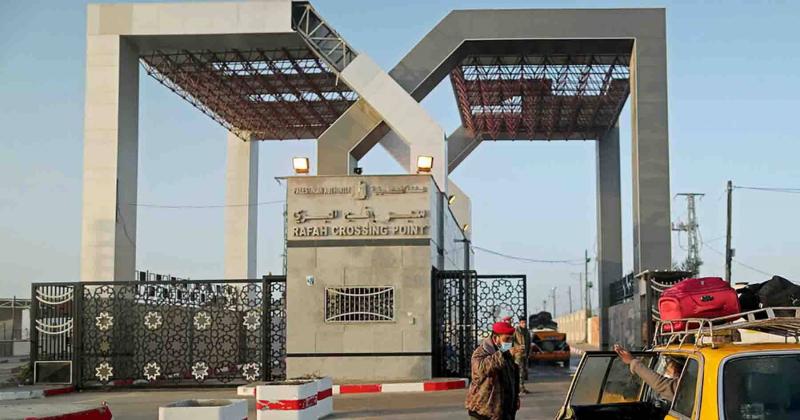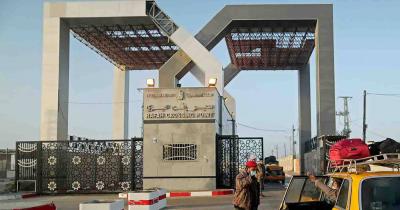Two Egyptian security sources reported that an agreement had been reached between the U.S., Israel, and Egypt for a ceasefire in southern Gaza starting at 6 a.m. GMT, coinciding with the reopening of the Rafah border crossing. However, the office of Israeli Prime Minister Benjamin Netanyahu confirmed that "there is currently no ceasefire or humanitarian aid in Gaza in exchange for the departure of foreigners." The media office of Hamas indicated it had no information about an agreement for a humanitarian ceasefire.
The U.S. embassy in Israel stated on Monday that media reports suggested Rafah crossing would open at 9 a.m. local time, but it was unclear whether travelers would be allowed to cross or how long it would be open. The embassy added in a statement that it expected the situation at Rafah to remain "volatile and unpredictable." It advised its citizens in Gaza to approach Rafah if they find it safe, noting that it might remain open for a limited time.
A responsible security source at the Rafah crossing said work was ongoing to prepare and maintain the crossing that connects Egypt and the Gaza Strip from the Egyptian side, in preparation for its reopening on Monday. The source told the Arab World News Agency (AWP) that there were directives to quickly prepare and rehabilitate the crossing from the Egyptian side to resume operations for the passage of foreigners in Gaza to Egypt and to allow the entry of humanitarian and medical aid into the strip.
The Rafah crossing separates Egypt from the Gaza Strip, where diplomatic efforts are intensifying to deliver aid to the region controlled by the Islamic resistance movement (Hamas), which has been subjected to intensive Israeli bombardment since the attack launched by the movement on Israel on October 7, resulting in 1,300 fatalities. Hundreds of tons of aid from several countries have been stuck in Sinai, Egypt, for several days, awaiting an agreement to deliver it safely to Gaza and to evacuate some holders of foreign passports through the Rafah crossing.
U.S. Secretary of State Antony Blinken, after meeting with Egyptian President Abdel Fattah El-Sisi on Sunday, said, "The Rafah crossing will be reopened. We are working with the United Nations, Egypt, Israel, and others to establish a mechanism to facilitate the entry of aid and deliver it to those in need." Blinken did not specify a timeframe for the reopening of the crossing. He mentioned that veteran U.S. diplomat David Satterfield, who was appointed as a special envoy for humanitarian issues in the Middle East on Sunday, would arrive in Egypt on Monday to finalize the details.
NBC News reported, citing a Palestinian official, that the Rafah border crossing would open at 9 a.m. on Monday. ABC News cited a security source saying the crossing would be open for a few hours on Monday, without providing further details. Reuters was unable to immediately confirm either report.




